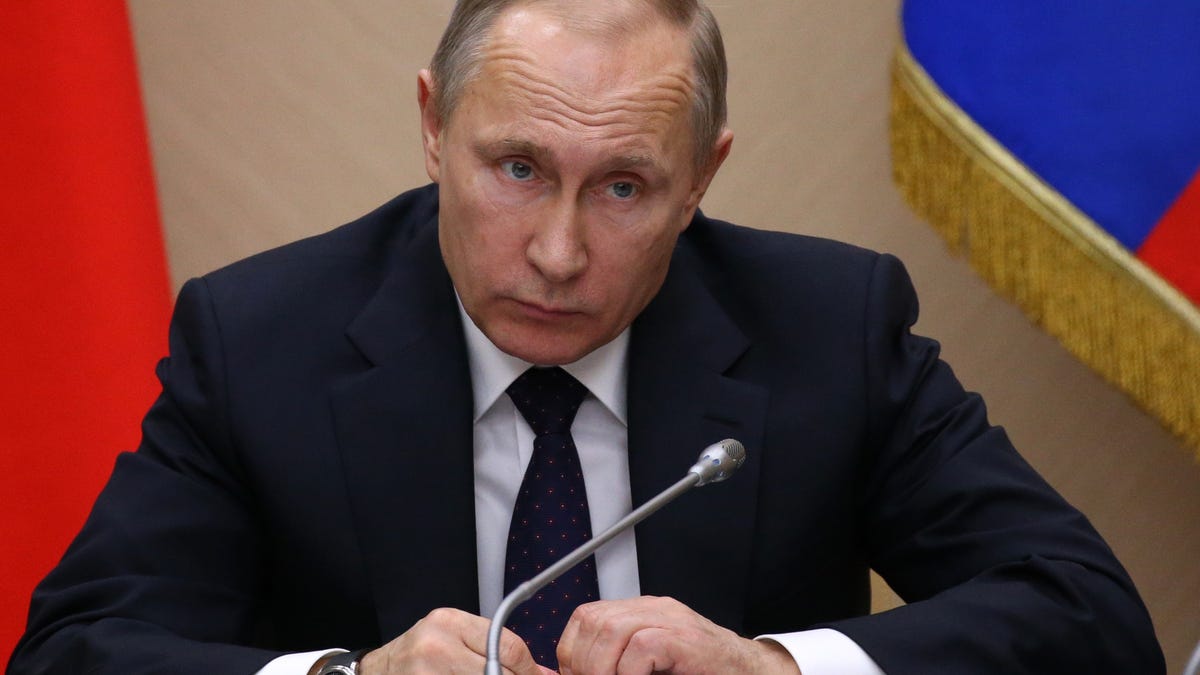Trump eases Russia sanctions to allow US electronics exports
The sanctions targeted a Russian agency for its role in US elections hacks. It turns out that agency also has say over import-export permits.

Russian President Vladimir Putin. The Trump administration has altered sanctions against a Russian agency that the US intelligence community believes hacked US political groups on Putin's orders.
A Russian agency sanctioned for hacking US political groups won't be quite so restricted now.
The sanctions, issued by then-President Barack Obama in December, barred US businesses from dealing with the Russian Federal Security Service, but it turns out the US has at least one reason to keep doing business with the agency -- getting permission to export electronics and other information technology to Russia.
On Thursday, the US Department of the Treasury issued a license (PDF) letting US exporters obtain permits from the Russian Federal Security Service for "the importation, distribution, or use of information technology products in the Russian Federation."
The change to the sanctions set off disagreement in Washington over whether President Donald Trump was going easy on Russia. Trump has equivocated on whether he'll maintain these sanctions, which targeted eight other entities in addition to the Federal Security Service, and other sanctions that Obama issued in response to Russia's actions in Ukraine.
White House spokesman Sean Spicer said the change wasn't a sign of Trump rolling back the sanctions against Russia.
"It's a fairly common practice for the Treasury Department, after sanctions are put in place, to go back and look at whether there needs to be specific carve-outs for different industries or products and services that need to be going back and forth," Spicer told reporters at a press briefing Thursday.
But US Rep. Eric Swalwell, a Democrat from California, said the change would help Russia. "Easing these sanctions allows Russia to sharpen its knives and import tools from the United States to hack us again," Swalwell said in a statement. "Congress must act swiftly to re-impose these sanctions so that those who attack America know there's a price to pay."
The Treasury Department didn't respond to a request for comment on whether the license permits US companies to sell products directly to the Russian Federal Security Service. Experts told Politico that the agency, said by cybersecurity experts and the US intelligence community to have hacked the Democratic National Committee and the Pentagon, would not be the purchaser of US electronics and other IT products under the revised sanctions.
CNET Magazine: Check out a sampling of the stories you'll find in CNET's newsstand edition.
Life, disrupted: In Europe, millions of refugees are still searching for a safe place to settle. Tech should be part of the solution. But is it? CNET investigates.

